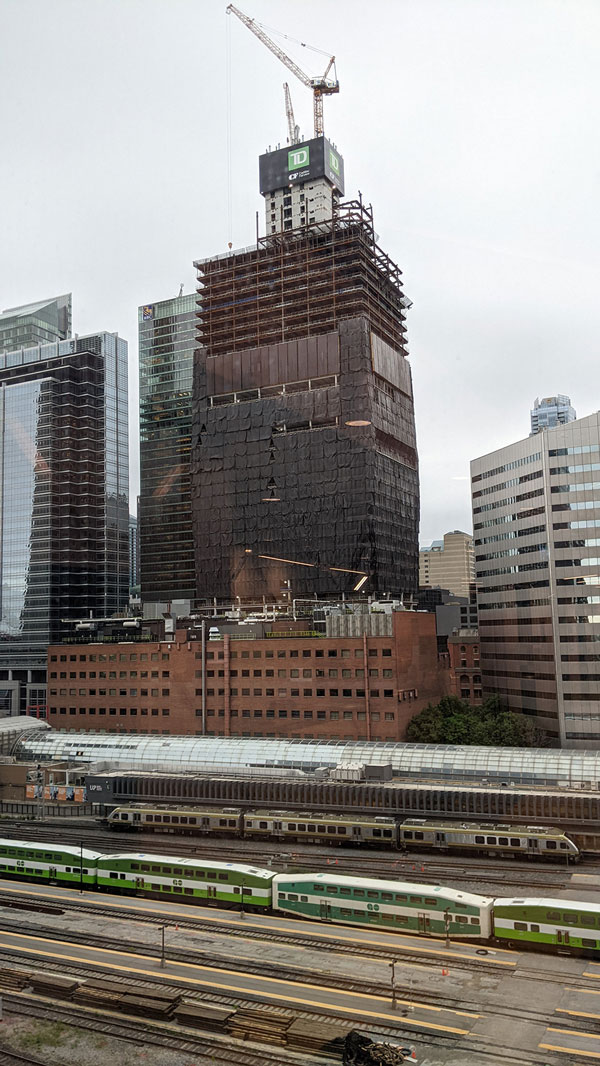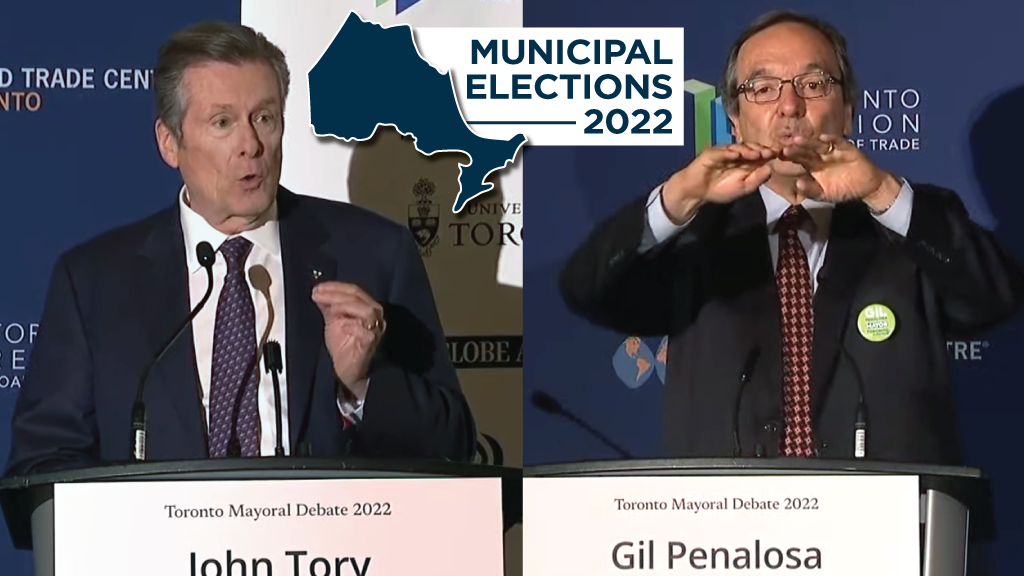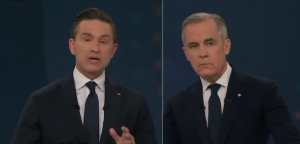Toronto Mayor John Tory defended his record on transit, housing, the economy and leadership during the last mayoral debate before Toronto’s municipal election Oct. 24.
Tory is gunning for this third term as mayor and appears set to romp to victory, with a recent Forum Research poll giving him 56 per cent support, 20 per cent of respondents identifying urbanist Gil Penalosa as their choice and the remainder of the 30-plus candidates at six per cent or below.
Joining Tory on stage Oct. 17 at the Toronto Board of Trade-sponsored event were Penalosa, ex-commissioner of parks and recreation in Bogota, Colombia; former Green Party candidate Sarah Climenhaga; financial analyst and entrepreneur Stephen Punwasi; and progressive policy analyst Chloe Brown. The moderator was TVO host Steve Paikin.
The tone was respectful but Brown was an aggressor, saying Tory’s SmartTrack transit plan had failed, that Tory and Penalosa represented a bygone era of politics that was driving young people out of the city, and, after Tory said he had shown leadership during the pandemic, that Tory’s only role was to read messages written by others.
Punwasi also said Toronto needed a generational shift in leadership.

Tory said he was the only candidate with a track record of obtaining multi-level support for major plans for transit and housing and then taking steps to put the plans in place. He was instrumental, he said, in putting together a $28-billion deal for new Toronto subway and LRT lines that has funding commitments from the federal, provincial and municipal governments.
The last thing Toronto needs, Tory said, is a change of direction.
“For the first time ever in the history of this city, we have the three governments that have agreed on the transit plan and they’ve agreed on where to go and how it should be paid for,” he said. “And what I’m seeking in this election is a mandate to make sure we proceed with that plan. And we don’t do what Torontonians have done so many times before, which is one person has one idea and they pull a part out of the plan. Or they say I have a better idea and I want to start negotiating to change the plan. We have a plan.”
Brown said Toronto needs to take politics out of transit planning and to take the advice of experts.
“We have too many people that are planning transit without a transit engineering degree, without a civil engineering degree,” said Brown.
Brown, Penalosa and Climenhaga all argued Toronto lacks a commitment to pedestrian infrastructure.
“Every single transit trip or every single car or bike trip begins and ends by walking,” said Penalosa. “We need to make walking safe and enjoyable. I’m proposing a neighbourhood city, a city where all their basic needs, the park, the grocery store, the restaurants, the library, are within walking distance. This is doable.”
Climenhaga is advocating for free transit.
“Every transit trip saves the city money. We shouldn’t have any barriers in the way to ride transit,” she said.
Paikin’s question on housing needs gave Penalosa an opportunity to take the offensive against the incumbent. He said Tory has done “nothing” on housing in the past eight years. Penalosa’s signature plan is a “renovation revolution.”
“Affordable housing has been a huge failure,” said Penalosa. “They don’t even have one shovel in the ground…everyone knows someone that is leaving Toronto because they can’t afford a house.”
Tory defended his record on affordable housing, saying, “The number of affordable housing units in development today is many times in excess of the combined productivity in that regard of previous administrations.”
He has a five-point plan to create more housing. He will cut red tape and speed up approval times with a new development and growth division to act as a one-stop shop for development reviews, and he will focus on developing missing middle housing.
Penalosa also said a one-stop permitting agency could create thousands of units more quickly.
Climenhaga said Toronto has 200,000 bylaws, which represents too much regulation. To unlock housing, she supports a vacancy tax.
Punwasi said the city could encourage innovation by harnessing the abilities of Toronto’s tech sector. He introduced two ideas his campaign is “pumped about”: a municipal payment processor and a community venture fund.
The latter, he explained, is a “venture accelerator to invest in our innovators right now.
“We are known as being the largest real estate bubble in the world. We should be known for fostering business and innovation.”
Follow the author on Twitter @DonWall_DCN.











Recent Comments
comments for this post are closed